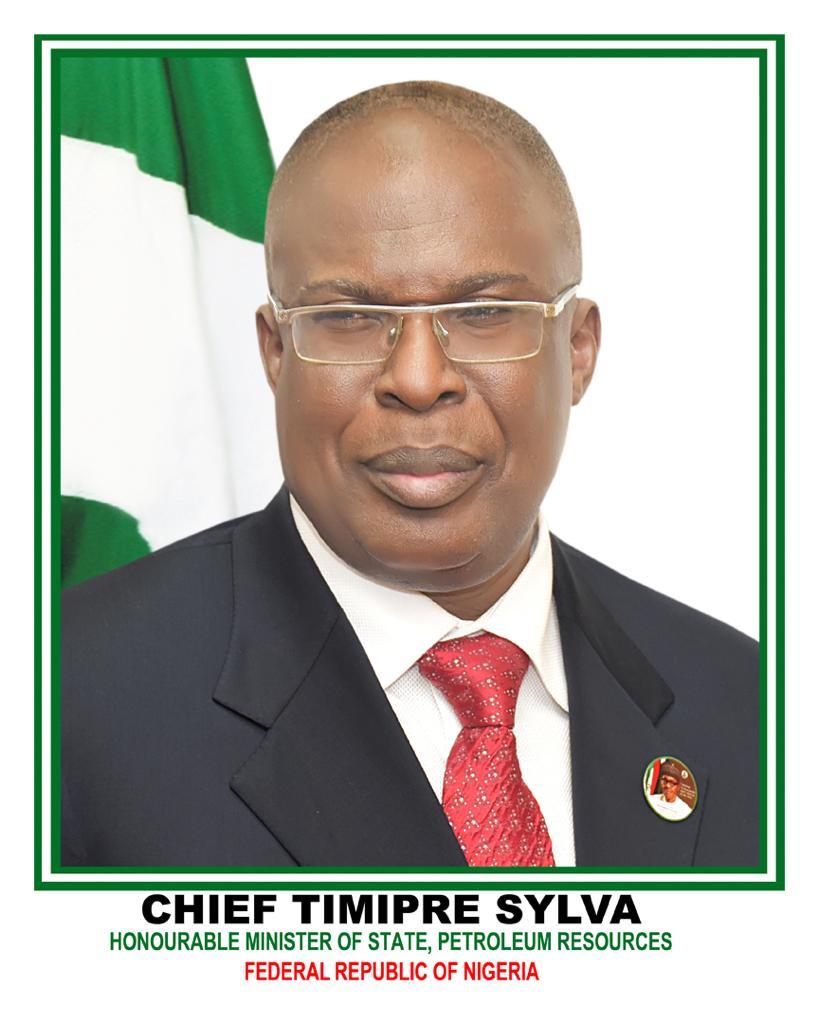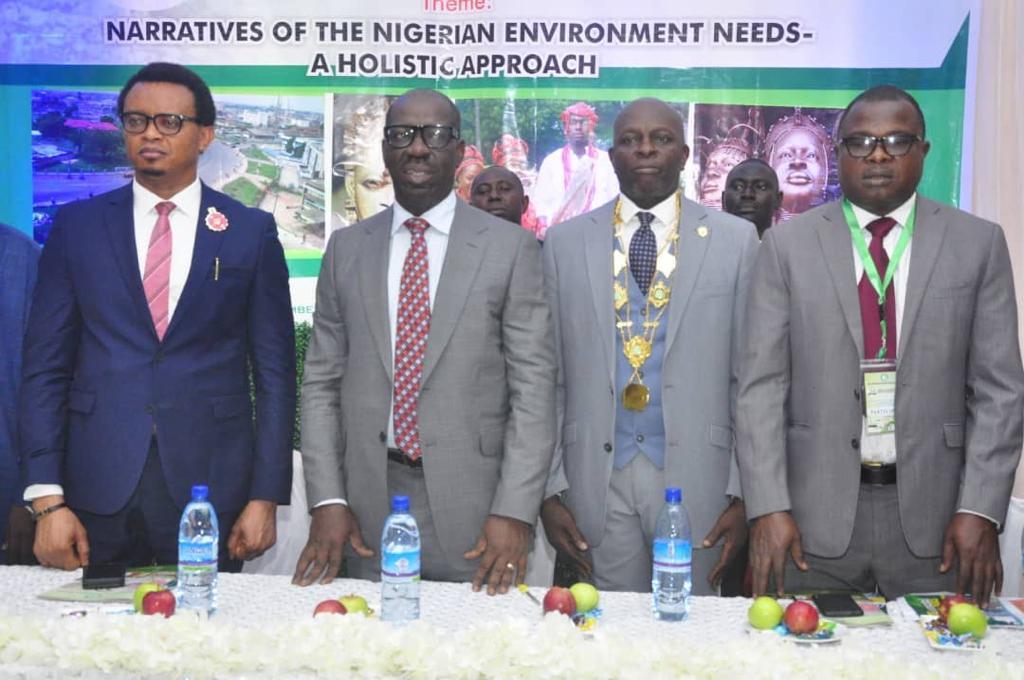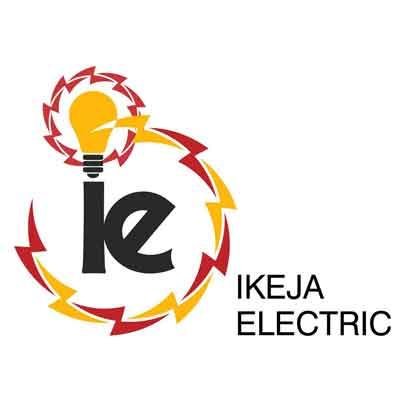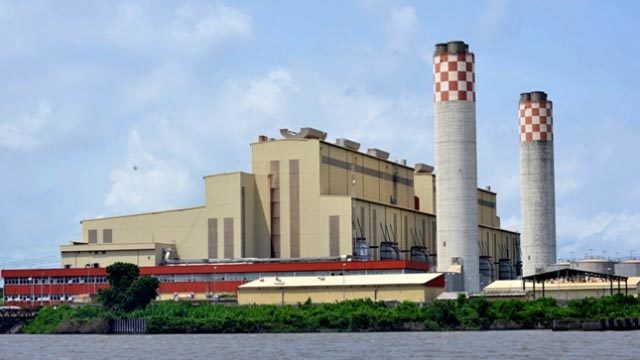The Minister of State, Petroleum Resources, Chief Timipre Sylva, has called on Nigerians and industry experts to raise their game in driving environmental protection and issue around climate change management for the sake of present and future generations in the country.
Delivering his Keynote Address at the 29th National Conference of the Nigerian Environmental Society (NES) in Benin on Thursday, the Minister averred that “Today, one way or another, I want to urge us to create a legacy for future generations – either by action or inaction. Both we as a government and yourselves have a big role to play in shaping that legacy together – through the policy decisions and strategic approaches and of course business investments we make. To be sure, we need to reflect ‘whole of society’ and ‘whole of government’ approaches to addressing our environmental issues.”
The Honourable Minister, represented by the Program Manager, Nigerian Gas Flare Commercialization Programme (NGFCP), Mr. Justice Derefaka, who now, doubles as the Minister’s Technical Adviser on Gas Business & Policy Implementation, said “For us in government, a key way we can do this, is our emphasis on collaboration. My Ministry operates under a consensus governance system, and this approach to working together translates to how we work with industry, academia, service providers, communities, and other government agencies, MDAs and groups to create effective programs, services and initiatives that will demonstrate sound environmental stewardship and benefit our economy and our people.”
Giving insights on the theme of the conference – ‘Narratives of The Nigerian Environmental Needs – A Holistic Approach,’ recalled that “Over the last decades the global community has adopted an impressive number of environment-related international treaties and agreements. And Nigeria is a signatory to some of these treaties. According to one count, there are more than 500 such treaties. (Asan aside, 195 are concerned with water, 180 with chemicals and wastes, 155 with biodiversity, 60 with the atmosphere including climate change, and 45 with land use).
“I also would like to share with you my passion for the 2030 Agenda and my eagerness for what the UN 17 Sustainable Development Goals (SDGs) can do for humanity. The SDGs are by far the most ambitious, most discussed, and most far-reaching vision that the UN has ever presented to the world.
“I will highlight the most serious challenge we currently face locally and globally: the climate change phenomenon. I want to cover quite a bit of ground in the next few minutes. Let me start with a startling report by the World Economic Forum which says that six (6) of the ten (10) greatest risks, in terms of likelihood and impact, are environment-related. And we all know that environmental challenges are complex and interlinked, not only in themselves but also with social and economic issues.
“Better human well-being, for example, poverty reduction, improved human health, energy access and economic growth, are linked to ecological factors. Solutions for one problem can lead to unintended negative consequences, or create new environmental or socio-economic problems. For example, increasing food production in ways that deplete soils, waste water, kill pollinators and increase desertification and deforestation, would eventually prove self-limiting.
“As a nation, we have committed ourselves to the delivery of the SDGs and the accompanying targets. The SDGs are a mixture of closely entangled social, economic and environmental objectives; it is not possible to have sustainable social and economic development if we allow our environment to degrade. Alongside alleviating poverty, there is clearly a need to prevent and reduce all forms of pollution.
“As a reminder of the Paris Agreement– all governments are to take action, not just developed countries, as was the case with the Kyoto Protocol. For the Paris agreement, some technicalities need to be addressed. Why should we care about a few technical details? We need to because without them, the Paris Agreement will not be functional. The Agreement needs to have environmental integrity (robust rules, for mutual trust, confidence, clarity and credibility), it needs to be fair (applicable to all, and not put Nigeria and other developing countries at a competitive disadvantage), and it needs to have mechanisms that support reaching its temperature goals.
 According to the Minister, “History tells us that when we look for common solutions to existing challenges, we benefit from collective insights and wisdom. As we set in motion to discuss and brainstorm on the theme and plenary topics of this conference drawing on the lived experience and expertise of all stakeholders, I have no doubt that we will create a solid plan in finding a lasting solution to the environmental issues of our dear country plus expand and diversify our economy.
According to the Minister, “History tells us that when we look for common solutions to existing challenges, we benefit from collective insights and wisdom. As we set in motion to discuss and brainstorm on the theme and plenary topics of this conference drawing on the lived experience and expertise of all stakeholders, I have no doubt that we will create a solid plan in finding a lasting solution to the environmental issues of our dear country plus expand and diversify our economy.
“Hence, we need to innovate (more) and to communicate (better). Why because, I believe everyone here today knows what needs to be done. Let us work together and take immediate, focused and concerted action to ensure the adoption and practicality of a sound and integrated environmental management approach for Nigeria and see how our energy landscape will help address climate change and energy poverty.
He averred that “The adoption and practicality of a sound and integrated environmental management approach if accomplished – will increase the likelihood of successful operationalization of same. It may not constitute a formula for success, but it does have a generic set of attributes that could constitute a foundation for effective practice.
While noting that the adoption of such an approach is not an end in itself, but a means to achieving any number of ends identified by a set of stakeholders working within a complex broad spectrum of environmental management institution, the minister argued that “In my opinion, these are the building blocks for the successful development and implementation of a sound and integrated environmental management approach for Nigeria.”
“To prove that the adoption of such approach is achievable, the Nigerian Gas Flare Commercialization Programme (NGFCP)in my office passed through that sieving funnel, hence the design of the NGFCP according to our development partners, is an innovative, robust and scalable approach to gas flare reduction – a “game changer” (first of a kind) consistent with the climate change action plans anticipated in the Paris Climate Change Accords which could be replicable in many other gas flaring countries around the World with Nigeria setting the pace
Re agreed that no doubt, “Nigeria as a nation faces an array of environmental tests. These tests boil down to the fundamental challenge of making enlightened decisions today and tomorrow, decisions that will place people and the planet on course for a better future.”
The Minister thanked the officials and members of NES for putting up the conference and called on participants to raise their commitment in shared vision of humanity for the interest of present and future generations in Nigeria.
Earlier in his opening remarks, the Edo State Governor, Mr. Godwin Obaseki described the conference as timely and strategic as Nigeria continues to reform its energy sector for a better economy and environment.









